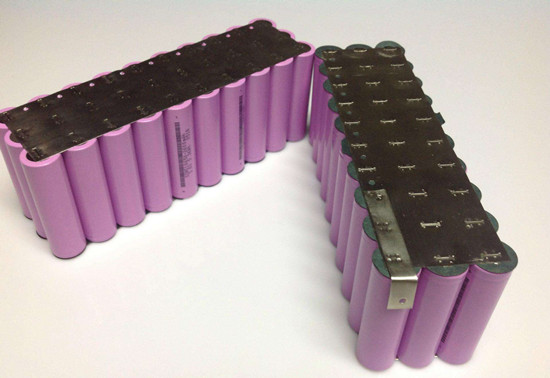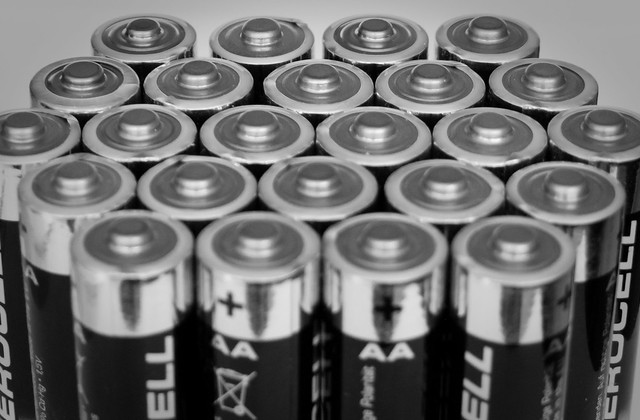18650 Battery Disposable-Disposing and Buying
Mar 26, 2020 Pageview:1342
18650 battery is one of the type of lithium batteries. Such batteries that are made of lithium-ion have revolutionized the portable devices. From our smartphones and cameras to baby monitors, exercise devices and flashlights they're used in all.
Batteries, like the 18650, once reserved for computer manufacturers, have made their way into consumer hands as battery technology matured. Such new lithium cells were not standardized just like the rechargeable AAs you can find in the supermarket. In this article, we are going to discuss the detailed about 18650 batteries and how to dispose it in a protective manner.
Are 18650 battery disposable?
Yes, 18650 batteries are disposable. Although 186580 batteries are considered as a toxic waste, the last thing you're going to want to do is to dump it into the garbage or recycle bin. The best way to dispose 18650 battery is to find and drop them off to the nearest store which has a battery disposal or hazardous waste collection zone. From there the batteries will be safely recycled or collected by the store or waste site without any hassle and will be transferred to a safe place.
There are several shops that are going to be taking such kind of batteries and the experts who are responsible for it will dispose it off in the concerned place. In most local grocery stores, you can find recycling spots, which also have a different recycling section. Home improvement stores like Home Depot or Lowe's typically often have dedicated battery recycling bins near the entrance, so you can drop it off at your nearest auto parts shop.
The advantages of using disposable 18650 battery include:
High energy density
18650 lithium batteries, have an energy capacity almost twice that of alternatives such as NiCd batteries. Now work is under way to further develop the electrode. The energy density will increase higher if better active materials are used in it.
Needed only one cell
Instead of having two cells, one cell of lithium-ion batteries gets the job done because of the high voltage that these batteries produce. This is also the case for 18650 batteries. This has made the battery design process for cell phones and laptops considerably simpler.
A remedy for low maintenance
Either 18650 batteries or other types of lithium-ion batteries, low maintenance is needed for each of them. This is a point that makes 18650 lithium batteries differ from other batteries as other batteries need to be maintain every week otherwise it will be quite dangerous for the device.
Although these advantages allow lithium-ion batteries, like 18650 disposable batteries, to be an excellent option for modern day devices, this does not mean that the product is flawless.
How do you dispose of a 18650 battery?
Ensure that the lithium batteries are not exposed to heavy or prolonged sunlight. Neither expose batteries to water or moisture. Carefully treat and load these batteries, so that the protection system (casing) is not harmed. It can easily happen when batteries are stacked or placed under heavy items, without a protective cover. Always, ensure the cores can not come into direct contact with each other and that the batteries are drained properly before further processing. Failure to do so can cause batteries to break, catch fire or explode.
Li-ion batteries contain materials which can be recycled using the proper procedure. Metal compounds, ferrous metal, aluminium, copper, graphite, and plastic are recyclable materials.
We have created a decision tree for assisting with the battery disposal. The diagram helps to illustrate acceptance and manufacturing conditions and includes three separate types including (swollen) li-ion batteries, rechargeable (low-grade and high-grade) and small industrial batteries.
Batteries without protective case and pouch cells must be sorted separately for each of these three categories, resulting in six possible sorting categories. This is the only way to dispose 18650 batteries by the experts.
How do customers have to dispose 18650 batteries?
18650 Lithium ion batteries can be recycled but only at the treatment facilities that are required. Once recycled, they must be disposed of at a collection point for household e-waste or drop off site for battery recycling. Of course, caution must be taken about the electrical hazard because 18650 lithium batteries are high-capacity batteries, and they can produce higher voltages, that can pose an electric shock which is quite dangerous.
How do you avoid buying fake 18650 battery?
As any branded product, you have to look out for the fakes. Buying cheap cells, rewrapping them as name brands and selling them as genuine products via Amazon or eBay is popular for many vendors.
It is not only a waste of your money but it is also risky. When you are buying a battery for a high powered system that believes it has an appropriately secure CDR, you could be hurting yourself or harming your system when the battery turns out to have a completely different rating.
Battery scammers are all good at what they're doing. It is extremely hard to tell between a genuine battery and a fake. From packaging, to branding, to listings online, they look like the real thing. The only way to tell a fake from a real battery is by weight.
Most brands have somewhere given the weight of their genuine batteries. Both batteries you purchase online should be cross-referenced with the manufacturer's specifications. Even spelling errors do not signify a fake, as one genuine fabricator had to find out in an update to Facebook or their other pages to confirm it or its better to go with an expert of battery for buying the battery.
Conclusion
Choosing the right battery for the right equipment type may make or break the experience of using that device. Even in the umbrella of lithium-ion batteries, you can choose between a lot of the kinds of cells. Just opt for 18650 disposable batteries for your system when they are obviously high-drain.
Whatever type of Li-ion battery you choose, one thing is for sure, these batteries are much better than those made from other chemicals.
Leave Message
Hottest Categories
-
Hottest Industry News
-
Latest Industry News












